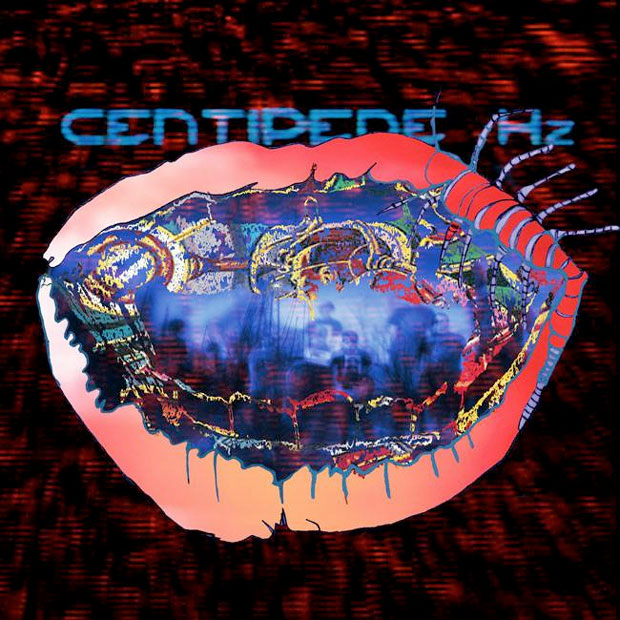Correction: The original photo credit for this article contained an error. The photo is from Domino Recording Company.
It may seem extreme to compare Animal Collective to The Beatles, but in many ways their music has similar attributes. Both groups’ songs take pop music and turn it on its head by combining the easy melodies with a myriad of genres and hard-to-digest, avant-garde influences, making something far greater than the sum of its parts.
“Centipede Hz” follows suit by taking indie-pop rock and throwing it into vat of spacey, electronic acid. The music sounds like approachable melodies and rhythm layered within unconventional noise and experimental electronic-psychedelia themes.
This duality of catchy hooks and refreshing sounds is why Animal Collective is likely to win over any open-minded listener. It’s also why its 2009 album, “Merriweather Post Pavilion,” was the subject of enormous critical success and helped shoot the group into indie stardom.
Despite the success of its previous record, Animal Collective’s new album “Centipede Hz” is decidedly different from its predecessor. “Merriweather Post Pavilion” was recorded during guitarist Deakin’s hiatus from the group. The result was an ambient album filled with electronic samples. While “Centipede Hz” still has plenty of electronic influence and atmosphere, it’s sonically rich in its own way.
The new record is immensely dense. Upon first listen, it comes across as a chaotic circus of noise. The catchy melodies break through, however, and keep the music grounded and intriguing. It can be a challenging listen, but it makes the music that much more enjoyable once acclimated to the sound.
It’s clear from the first few seconds of music that “Centipede Hz” is an interesting ride. The first track, “Moonjock,” is a foreshadowing of what’s to come. It starts the record off with pounding drums and guitar, eventually accompanied by singer Avey Tare’s singing-shouting vocals. All the while, the song swirls with dozens of samples and electronic embellishments. The track builds up to an all-consuming climax, with Tare yelling “Let it out!” over and over until it cuts off in an abrupt ending.
“Today’s Supernatural” picks up right where “Moonjock” left off. The song starts with Tare yelling, “Let go!” and breaks into a bongo and electric organ-laden verse that sounds vaguely like the Doors crossed with Pink Floyd and an abundance of digital quirks. As the first single, “Today’s Supernatural” is one of the record’s easiest songs to latch onto. This is in no small part because of Tare’s vocals. His voice carries a sense of urgency and bare emotiveness that makes the music captivating and the melodies memorable ““ a trait found throughout the record.
In contrast to the aggressiveness of the first few tracks on the album, “Applesauce” comes across as a whimsical tune. Tare jumps into the hook right from the start, singing “I eat a mango, and I’m feeling like a little honey can roll.” Combined with Tare’s sing-along melodies and cheerful synths, the song is a playful break from the mysterious psychedelia that surrounds it. “Applesauce” is a direct shot of the group’s pop sensibilities. It’s hard to not to sing along to this one.
While “Centipede Hz” is a fantastic album, its intense nature can be an obstacle for some listeners. Where “Merriweather Post Pavilion” was more dreamy and delicate, Animal Collective’s latest adventure is a full-on auditory assault. Even Tare’s vocals, an integral part of the record’s success, can be a little grating at times. In “Monkey Riches,” there are certainly moments where his shrill cries are almost painful.
That being said, Animal Collective’s music has always been a little challenging. That’s part of what makes it exciting. “Centipede Hz” may have a few little hurdles, but it’s nothing a fan of experimental music, or certainly a fan of the band, can’t handle. Animal Collective has created a tumultuous soundscape littered with wonderful gems, and that’s certainly worth the challenge.
““ Abhay Malik
Email Malik at amalik@media.ucla.edu.
